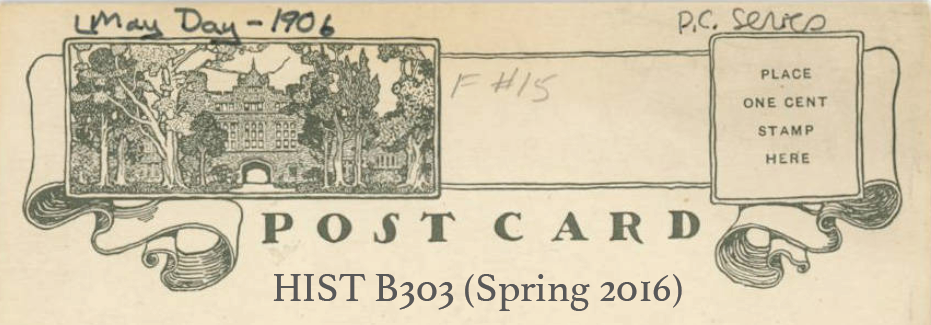Participating in the Community Day of Learning this past week gave me more insight into the importance of archiving and the public representation of Bryn Mawr’s history than I could have ever imagined.
I ended up going to three sessions throughout the day that each gave me some insight into the importance of questioning which voices are being represented on this College’s campus, how are they being represented, and what more can be done to amplify those most vulnerable and prone to oppression? I was confronted with all of these questions during the first session I went to, the Dining Services workers tell-all. The room was packed to the brim with students, faculty, staff, and even President Cassidy, as the dining service workers talked about the dehumanization and abuse that’s been inflicted upon them mainly at the hands of their peers. The student presenters linked their deplorable treatment to hierarchal structure and pay inequity of dining services at Bryn Mawr as well as to a deeper class and meritocracy issue that is part of American culture. The presenters revealed that they had been discussing and trying to inform the Bryn Mawr community about their maltreatment for years, only to be ignored or to have the cause die down with the high turnover rate of students. This would lead the current dining services workers to have to start from scratch, retelling narratives old and new to incoming dining services workers as well as facing the struggles of past workers with minimal knowledge of the counterattack strategies and coping methods of their predecessors.
Dining Services workers who arguably have the largest presence on campus sheerly in numbers are also the most prone to being silenced. This causes members of the Bryn Mawr community to be ignorant to the struggles they are facing and unfortunately increases the amount of apathy directed towards them. It also means that there is no documented or recorded documents that highlight their plight or their attempts to be heard available to the public. President Cassidy spoke at the session saying: “We should’ve been more responsive but we are addressing it….there are systemic inequalities that need to be corrected…..we are owning it and will try to take care of it.” While the Bryn Mawr community may never truly know how extensive the injustice of dining services workers has been, the first step towards setting ourselves on a new, more progressive path is to put resources into documenting, recording, and preserving the memory of the stories of Bryn Mawr Dining Services workers.
When I was at the “Black Labor at Bryn Mawr” session, I was blown away by the significance of silence as well as voice and visibility in remembering the lives of the black housekeepers and staff who worked at the College from its establishment onwards. While quite a bit of information was extrapolated from the few testimonies and narratives found on the workers at Bryn Mawr, so much was left unknown due to the institutional lack of demand for Black, working-class voices in Bryn Mawr’s history and representation.
I can envision future members of the Bryn Mawr community trying to do research on the importance of dining services workers on campus and coming up with a scant amount of resources due to the College’s past disinterest in preserving that part of its institutional memory. The sessions that I went to on Tuesday showed me how much needs to change in order for all Bryn Mawr histories to be accurately and ethically preserved for current community members and the ones to come.
